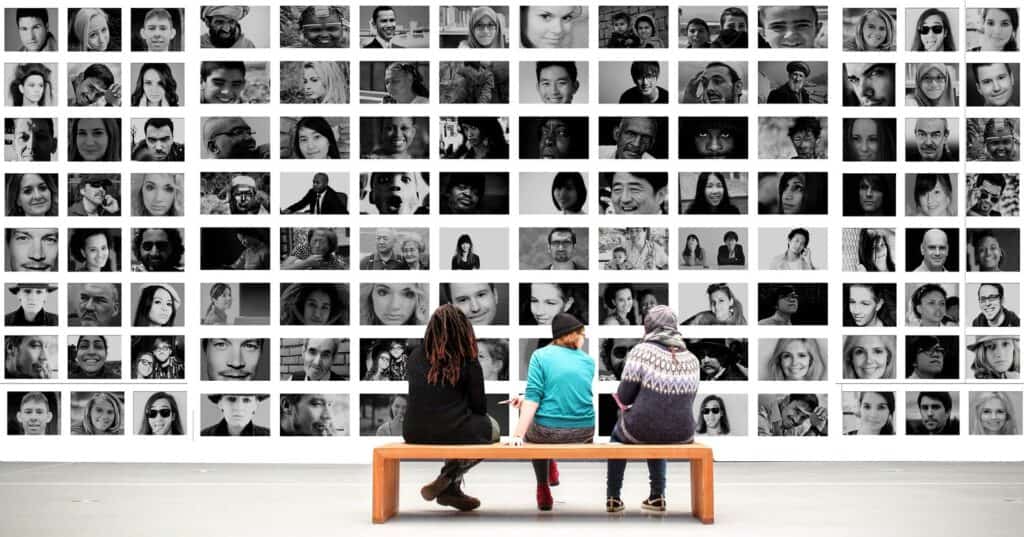More than two decades into the 21st century, societies around the world are facing multiple challenges. The urgent threat of climate change demands us to reconsider how we live our lives. The advancement of AI, data and digital technologies is creating both opportunities and threats that will require careful navigation. We are still grappling with the Covid-19 pandemic and its health, social and economic consequences. Running through all of these challenges is the ever-pressing concern of reducing inequality between countries, communities, genders and races.
To respond to these challenges the labour market will change. The way we define and organise our communities will evolve. The expectations we have for our leaders may be different. We might reconsider how to parent and prepare upcoming generations. Our education systems will also need to adapt and respond to ensure we develop citizens who can thrive in a changing world. Higher education has an important role to play.
“I see higher education as being for equipping people with advanced knowledge and advanced capacities to become active citizens in the world, with a sense of agency, whether that’s in a great job, as a parent, a self-employed artist or whatever” says Professor Sian Bayne, Assistant Principal Education Futures and Director of Education at the Edinburgh Futures Institute (EFI).
“They should be able to question things, understand how to research and apply knowledge to a wide range of contexts and problems, and they should be in a position where they understand the value of their own capabilities, skills and intellect.”

Equipping graduates
Professor Bayne is part of a team reviewing the University of Edinburgh curriculum to ensure the education students receive provides a robust and relevant foundation for citizenship, employability and a lifetime of learning. As Director of Education for the Edinburgh Futures Institute – created as an interdisciplinary education and research hub for tackling critical societal and planetary issues – she has overseen the launch of a new suite of postgraduate programmes designed to break new ground in inclusivity and flexibility.
For Professor Bayne, this means creating an environment in which students can work in teams with people from different disciplines, offering opportunities to develop creative, critical and data skills, and providing new kinds of flexible teaching and access.
“We know that there’s a big shift across the sector towards enabling more interdisciplinary education. Something we’re focusing on within the Edinburgh Futures Institute is how to make it easy for colleagues to design and teach interdisciplinary programmes that are going to give students these abilities to work in teams across multiple disciplinary and epistemological perspectives to address complex challenges.
“There are other sort of skills and capabilities that we know are likely to be important. Team working is one of them. Problem solving is another. What’s really critical is the ability to question – to zoom out and look at issues from multiple perspectives. At Edinburgh because we have the Data-Driven Innovation programme, we also have a focus on data skills and teaching students from all disciplines how to work with the data-informed methods that are increasingly important to decision making in many different areas of our lives and of society.”
Rethinking the campus
The pandemic prompted the whole higher education sector to rethink its delivery methods, abruptly adapting to online learning models. And while this was an intensely difficult period for many students and educators, Professor Bayne, who is a leading researcher in the field of digital education, hopes the experience has given educators a new, hard-won ability to confidently and creatively work with digital and hybrid approaches to higher education teaching.
“Historically universities have been very dependent on the idea of the campus as being where everything happens. The campus is almost a kind of touchstone of authentic academic experience, so even though we’ve got a fantastic portfolio of online postgraduate programmes there’s still often this lingering sense that on-campus is somehow better. I think that’s been changing slowly over the last decade or two and I think the pandemic really amplified that change, in that sense that we are now much better informed about how we might move our higher education teaching into digital spaces in a way that is good for everyone,” she says.
“We know from the work that we have done in the last decade or more in our postgraduate taught programmes that we can develop really sophisticated pedagogies fully online but often students do want to come to campus some of the time. We need to develop ways of enabling much more flexibility for students to choose when to come to campus and when to be online, and to move away from this feeling that online is somehow always second best.”
“It does seem increasingly arcane that we require doctoral students, for example, to come to campus. I’ve had PhD students who have had to leave their families with very young children or leave communities and roles they value to come to Edinburgh because that’s the expectation. It’s increasingly hard to justify that. We have the opportunity now to broaden our concept of what university is. I think we can shift from default campus-centrism to appreciating the value of the ‘networked’ university which is able to reach out to students all over the globe in very inclusive ways, and which allows students to connect with our community of scholarship in whatever way is most appropriate to them.”
Lifelong learning
As well as incorporating more digital models into traditional higher education teaching, Professor Bayne believes it is important to recognise and cater for opportunities for learning throughout life, especially as populations in advanced economies are living longer on average and technological developments continue to reshape the job market.
“Much of a university’s value lies in its ability to build coherent and compelling curricula based on research, expertise and deep knowledge, and we need to understand and preserve the value of that while also accounting for rapid social, technological and planetary change. I certainly don’t think we should be doing-away with the traditional model of the four-year degree or the one or two year Masters, but at the same time I do think we can develop new ways of configuring our offer, and opening up to people who want to study differently,” says Professor Bayne.
“We already have many great models for how we might do this in the university, but what we are doing in the Edinburgh Futures Institute is to start with the idea of the research-led masters programme and adapt its structure to enable lifelong learning for more part-time and diverse students to come on board. We are also making it possible for students to shift flexibly between studying online, and studying on-campus – and providing digital and physical learning environments which enable online and on-campus students to study together as a single cohort. We are trying to enact change in the context of what we know about the future of higher education teaching while maintaining the underpinning value and profoundly important social function of universities which goes back centuries.”
Education for the future
The Edinburgh Futures Institute has launched a new range of postgraduate ‘Futures’ programmes that align to this vision.
“By the time our students leave EFI they’ll have become very experienced working with other students and academics from different disciplinary areas. So they’ll understand how to navigate across disciplines and approach projects from different perspectives,” says Professor Bayne.
“They’ll also have been introduced to really broad networks of people. Working in partnership is integral to what we want to achieve. We work really closely with partner organisations in industry, community and government, so our students can have access to those networks by the time they graduate.
“I hope they will have developed the kind of confidence to take real risks with the way they approach problems but to take those risks responsibly. For example we’re teaching students how to use and understand data-driven decision-making and inquiry but we’re also teaching students about the ethical and social implications of such methods. The impact of data on society is a significant and a profound challenge that we need to address sensitively and from an informed position.”
Find out more about the Edinburgh Futures Institute’s new postgraduate programmes.






